
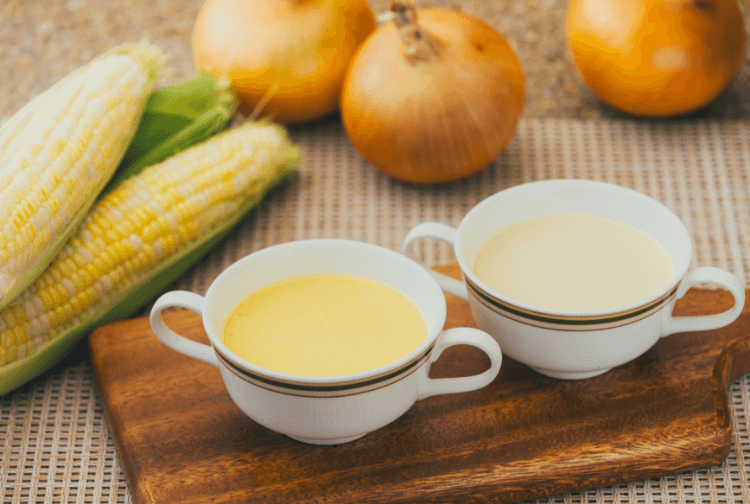
From Marunouchi to Yatsugatake, and across the country.
How a sustainable vegetable soup was born, connecting the aspirations of urban and rural areas
Royal Park Hotels
The delicious flavor of the vegetables themselves melts into your body.
Two types of soup, onion and corn, will be available at Royal Park Hotels for a limited time from September 1st to October 31st, 2024.
The ingredients are vegetables lovingly grown by organic farmers in the Yatsugatake region, but the rich flavor of the dish is in fact due in part to the water chestnut, a type of aquatic plant that has overgrown in the moat of the Imperial Palace in the center of Tokyo.
People involved in the environmental restoration of the moat around the Imperial Palace, farmers who carefully cultivate vegetables from the soil, and chefs who create unforgettable flavors. The "Sustainable Vegetable Soup" project connects urban and rural areas with the baton of circulation. We followed the thoughts of the people involved.
CHAPTER01
A new role for theovergrowth of aquatic plants in the outer gardens of the Imperial Palace
The story of the vegetable soup begins in Tokyo, in the lush green surroundings of the Imperial Palace moat.
A treasure trove of biodiversity located near Japan's leading business districts of Otemachi, Marunouchi, and Yurakucho, it serves as a place of relaxation for city workers where they can escape from the hustle and bustle.
However, this tranquil waterside space has long been plagued by a problem: in the summer, a type of aquatic plant called water chestnut grows so thickly that it completely covers the water surface.
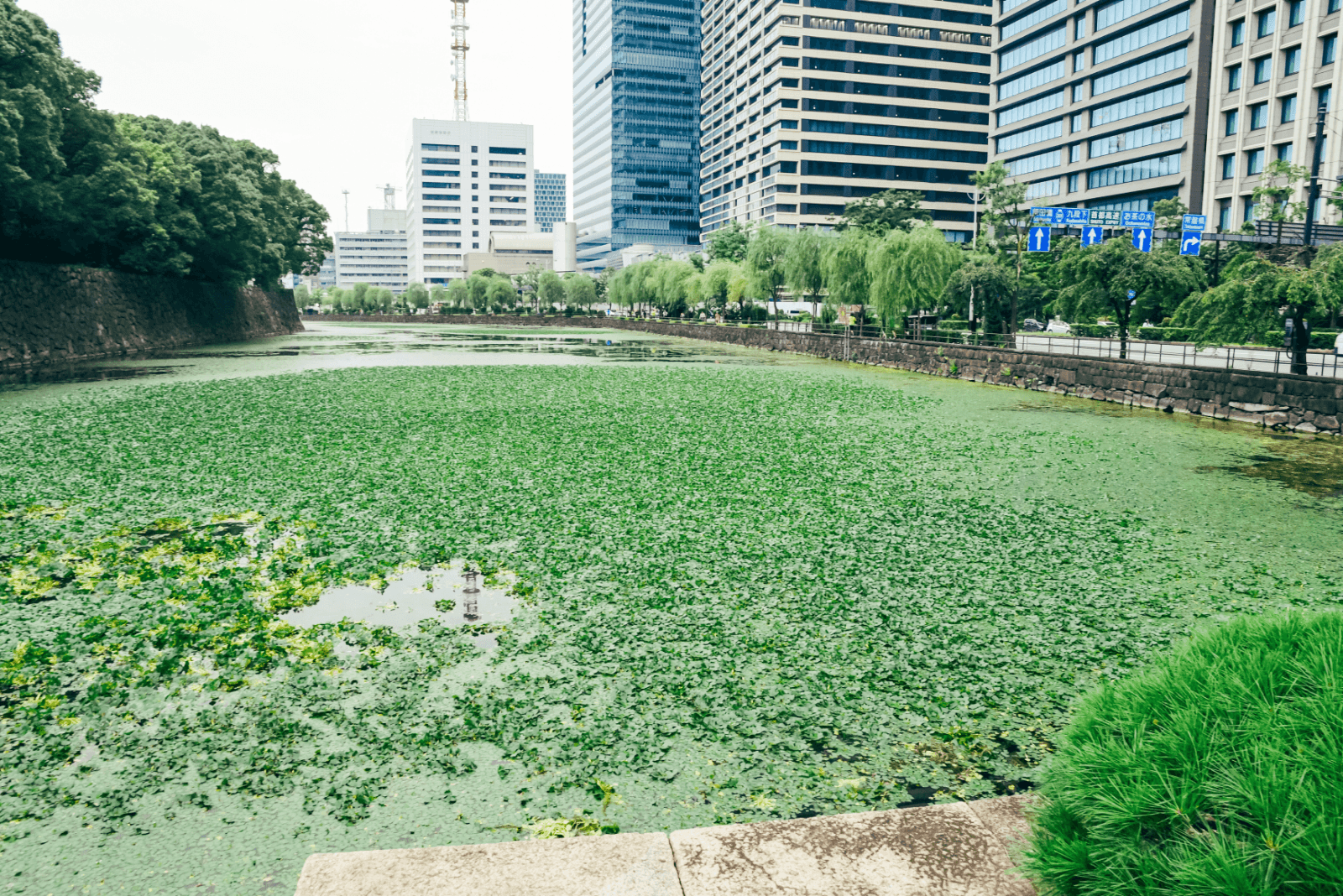
Water chestnuts are by no means evil creatures; they play an important role as a hiding place for small creatures that live near water.
However, if their numbers grow too large, sunlight will no longer reach the bottom of the water, upsetting the balance of the ecosystem.
Mitsubishi Estate, a member of Royal Park Hotels family, has been working on this issue, working with the Ministry of the Environment to restore the waterside ecosystem of the moat in the outer gardens of the Imperial Palace and protect biodiversity through the "Moat Project."
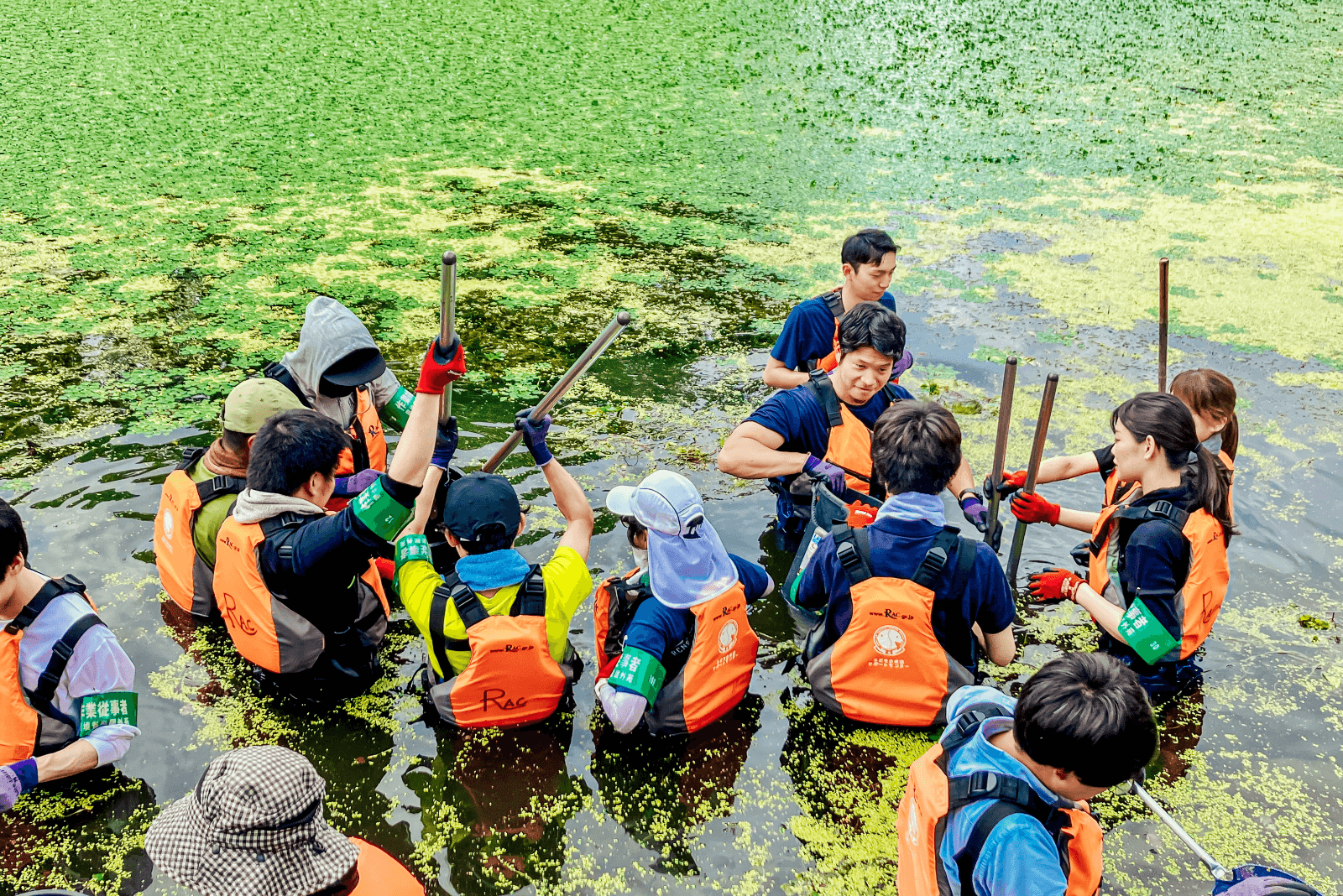
Mitsubishi Estate and the Ministry of the Environment have signed an agreement to restore the waterfront environment, centering on the moat in the outer gardens of the Imperial Palace,
The Moat Project is an activity aimed at conserving biodiversity.
Among the members taking part in the activities are office workers who work in the Otemachi, Marunouchi, and Yurakucho areas.
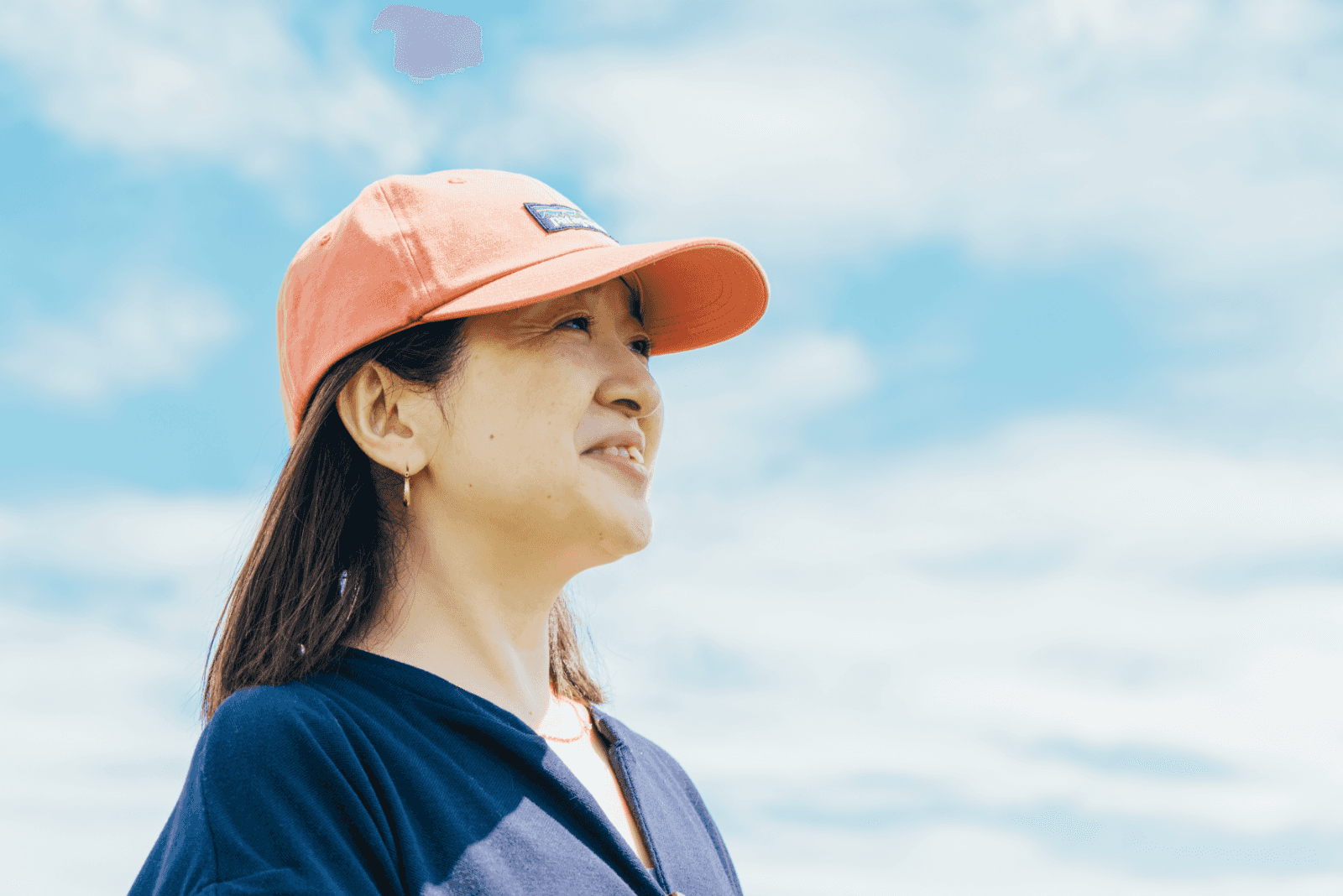
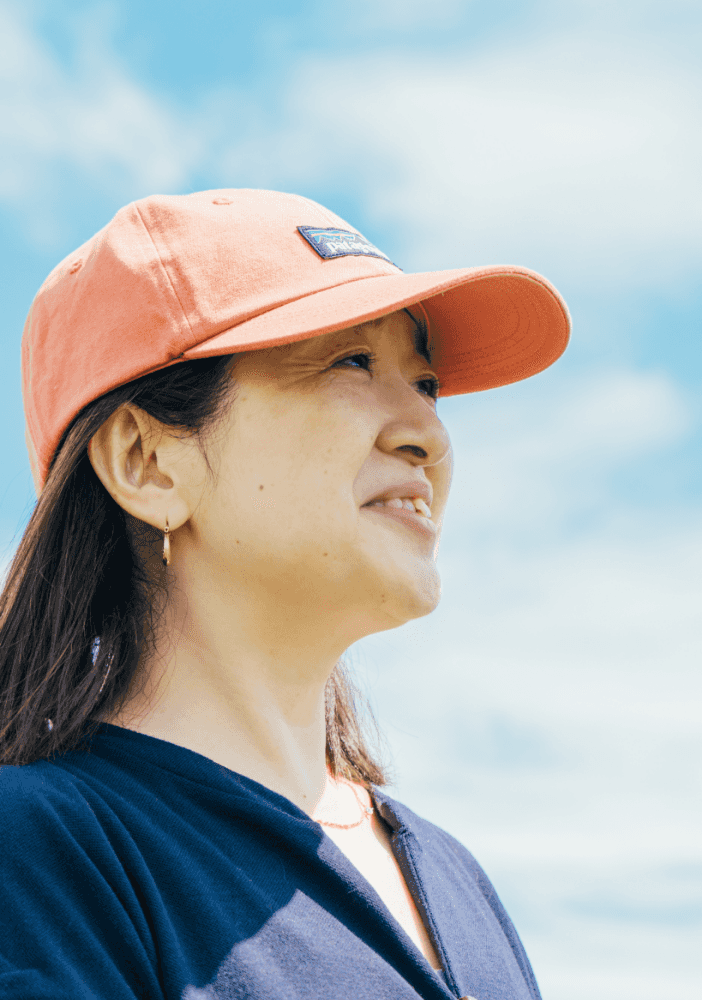
Mitsubishi Estate Co., Ltd.
Sustainability Promotion Department Promotion Unit Manager
Mariko Nagamachi
He is in charge of the "Water chestnut composting experiment (Food and Agriculture Lab)" and is active as a liaison between various stakeholders such as the Ministry of the Environment, farms, and restaurants.
"Around that time, the Sustainability Promotion Department was considering working with organic farmers in Hokuto City to create an initiative that would connect urban and rural areas. So we decided to try an experiment to turn the excess water chestnuts into plant-based compost."
A new role was given to the water chestnuts in the outer gardens of the Imperial Palace. With the hopes of Mitsubishi Estate in mind, the water chestnuts were transported to the Yatsugatake Mountains in Yamanashi Prefecture and entrusted to an organic farm.
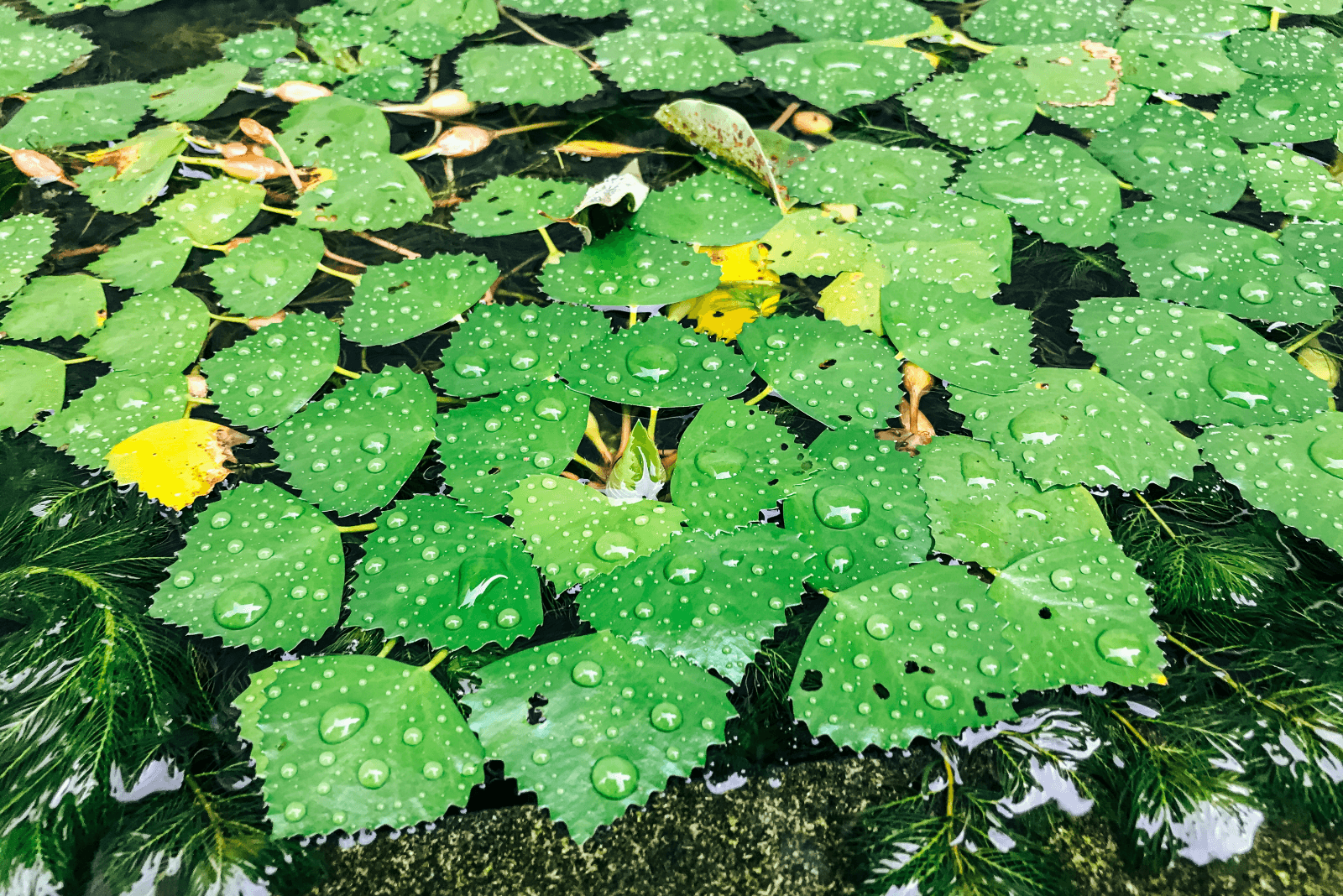
CHAPTER02
Organic connectionsemerge between cities and rural areas
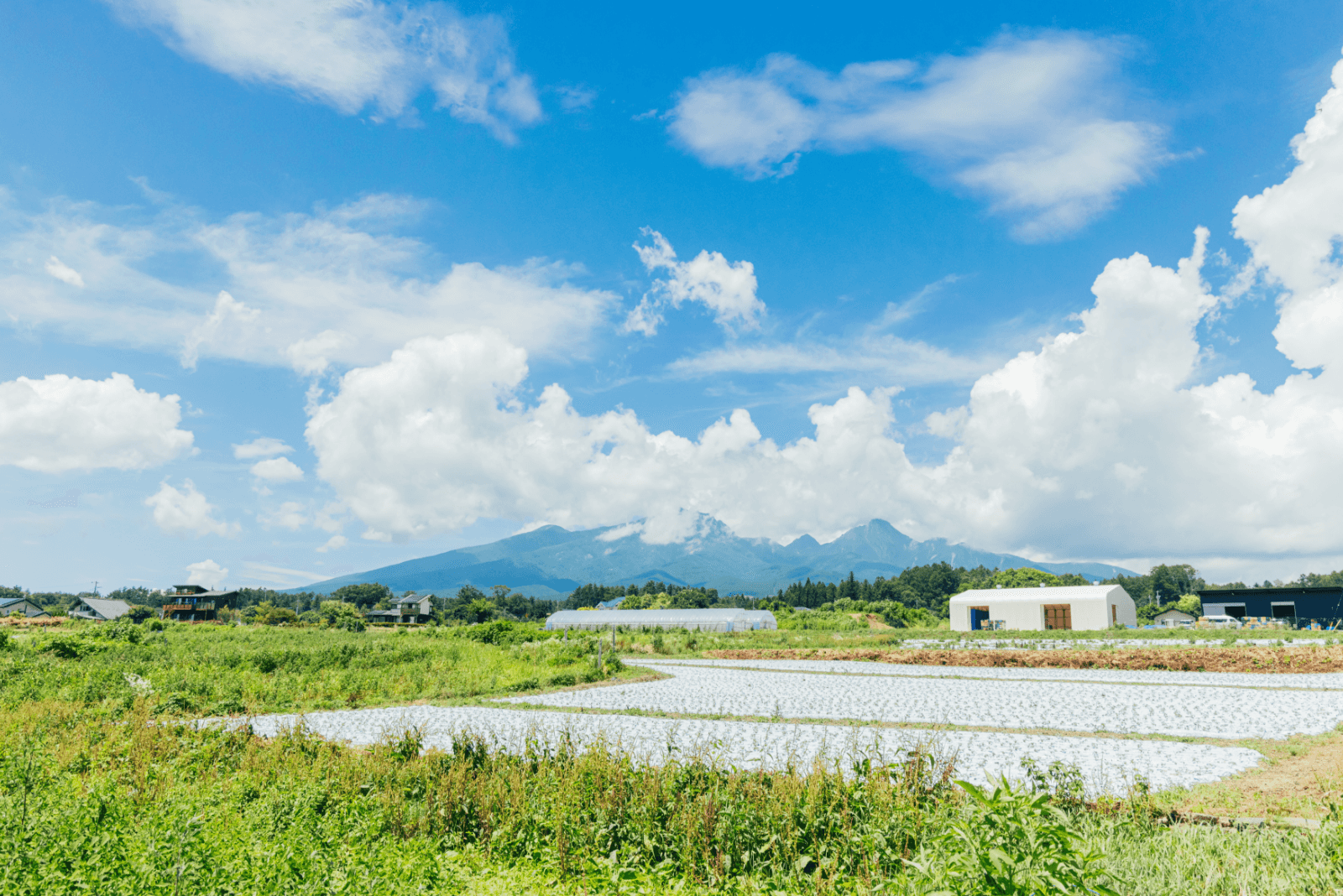
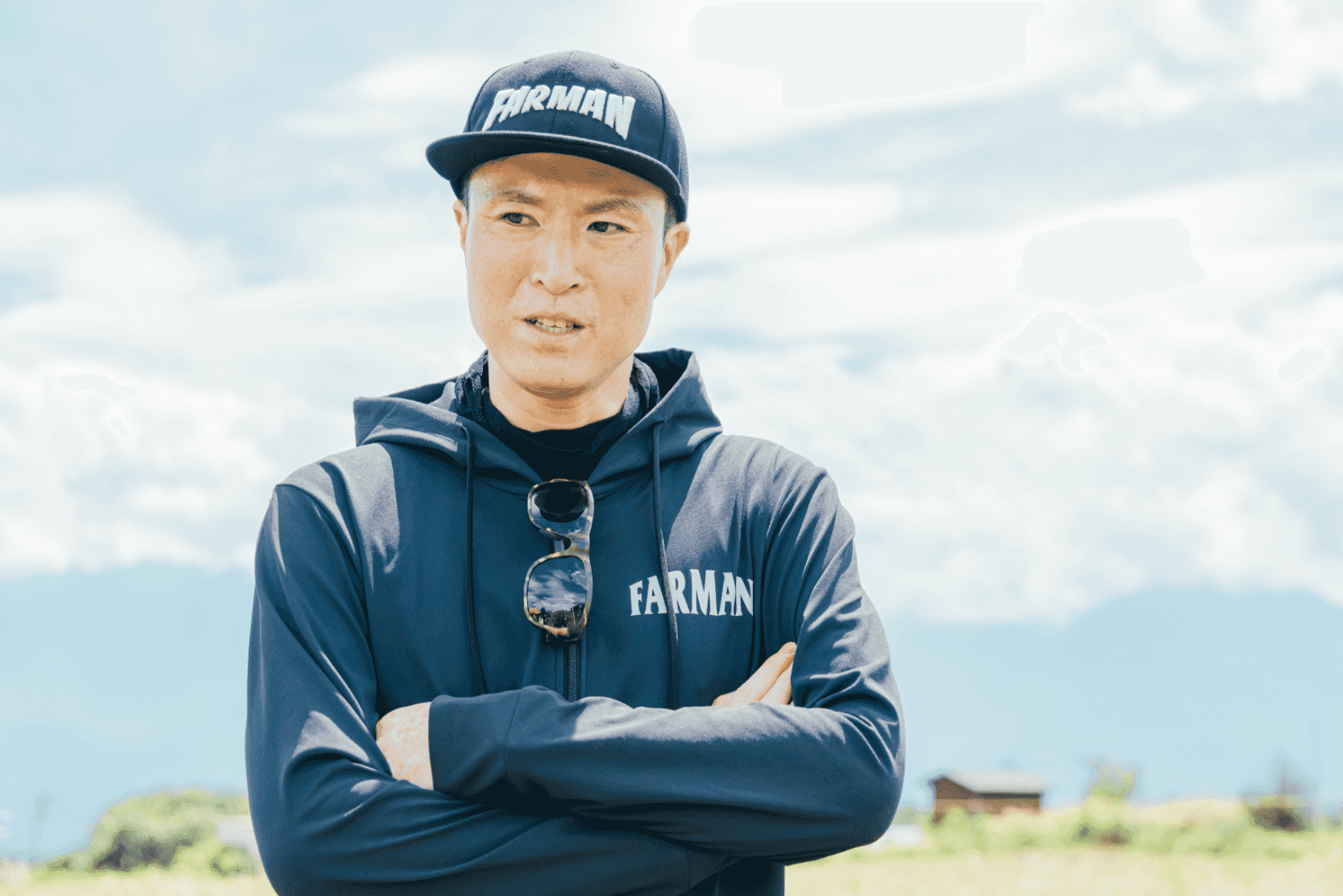
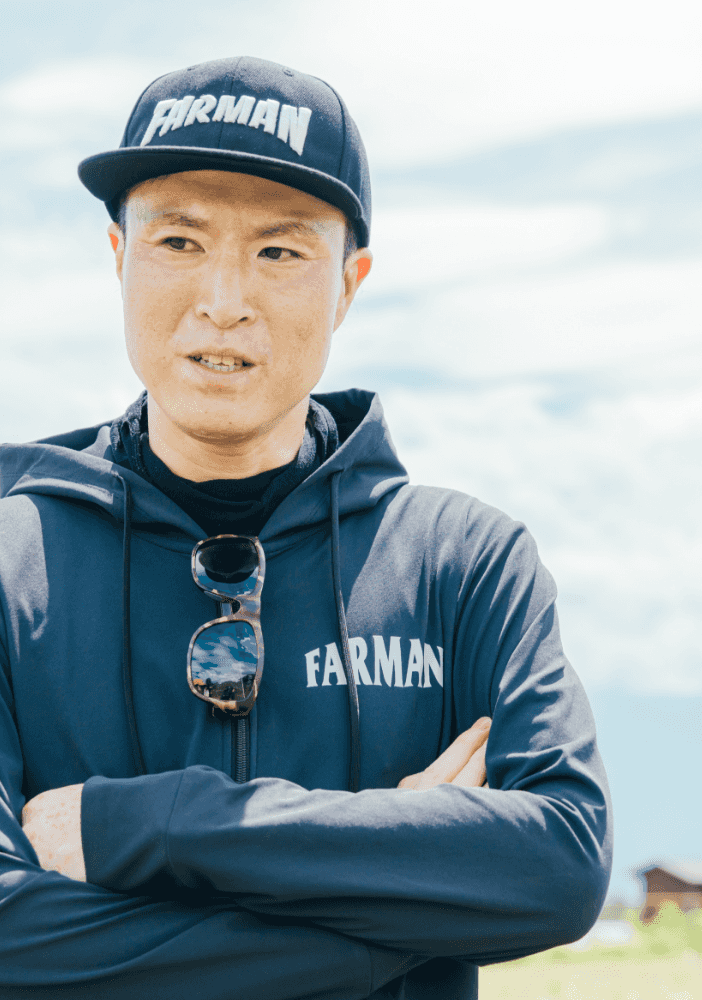
Farman Inoue Farm Co., Ltd.
CEO
Mr. Yoshitaka Inoue
高校時代のアメリカへのホームステイを機に農業に関心を持ち、有機農場で働きながら研さんを積む。 21歳のときに北杜市に移住。地域の福祉施設との連携や企業とのコラボなど、農業の可能性の拡大に取り組んでいる
The most commonly used compost is animal-based, made mainly from the excrement of livestock, but Inoue's work with water chestnuts involves creating a 100% plant-based compost using only fallen leaves, rice bran, and water chestnuts.
"Animal compost is highly nutritious and helps vegetables grow faster, so it is used by many farmers. On the other hand, what's great about vegetable compost is that it's rich in fiber, which provides nutrition for microorganisms. Even if you continue to grow vegetables in the same area and in the same place, it helps to improve the soil environment without causing excessive nutrients. When considering sustainable agriculture, vegetable compost has great potential."

Hokuto City, Yamanashi Prefecture, where the farm is located, is an agriculturally active region. It has abundant water from the Yatsugatake Mountains and the Southern Alps. It has some of the longest hours of sunshine in Japan. And it has a cool climate that is unique to the highlands. These topographical characteristics make it a tough environment for vegetable production.
"Vegetables grow slowly here, due to the large temperature difference between day and night. If you think of agriculture from the perspective of efficiently increasing productivity and producing large quantities, this location is not ideal. On the other hand, growing vegetables slowly has the advantage of giving them a stronger flavor, bringing out their aroma and sweetness. If you think about how delicious they are, this is the perfect environment."
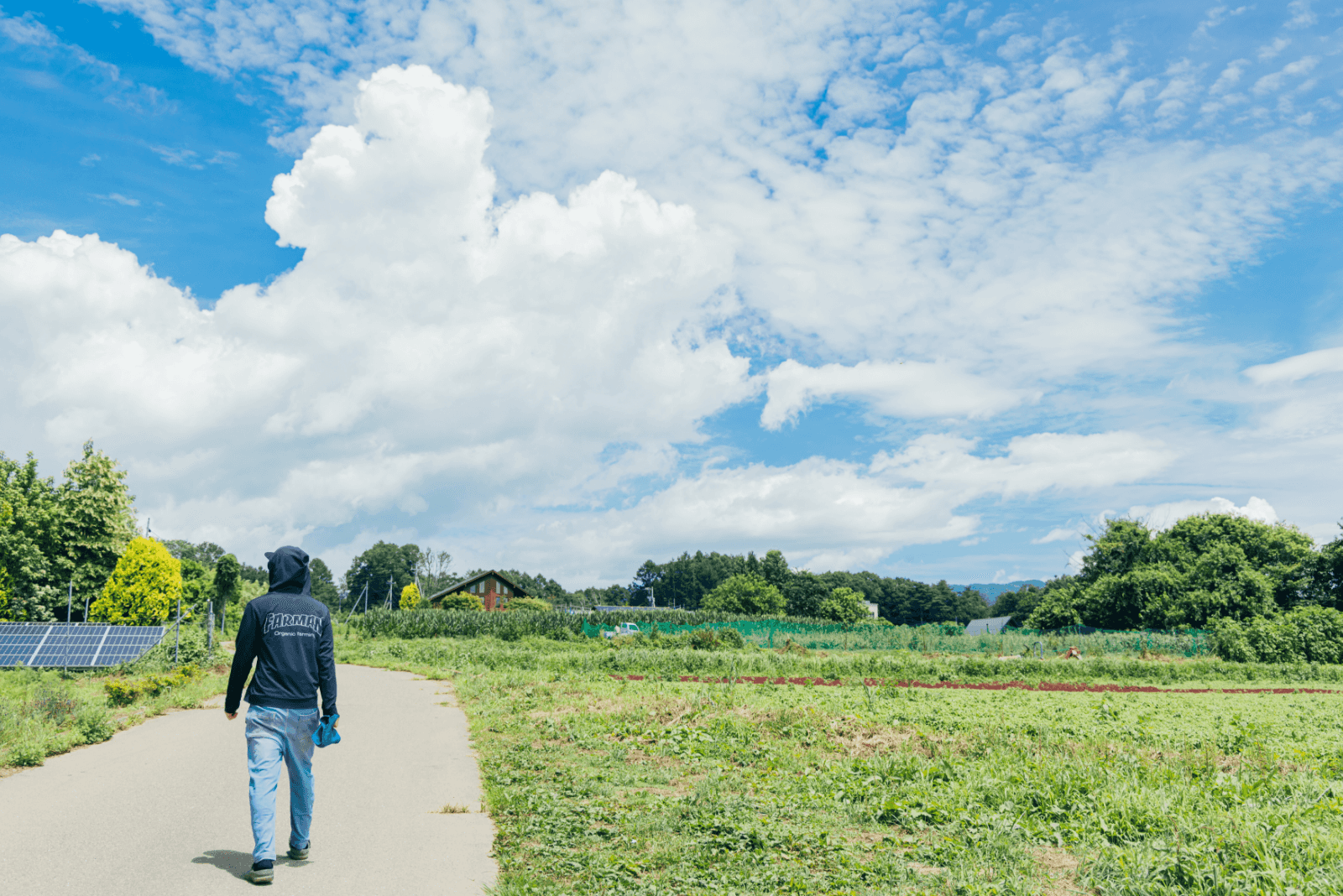
Mr. Inoue shows us around the farm. He practices agricultural production that does not rely on chemicals.
They have also obtained the "Organic JAS Certification," which proves that the crops are grown using the power of nature.

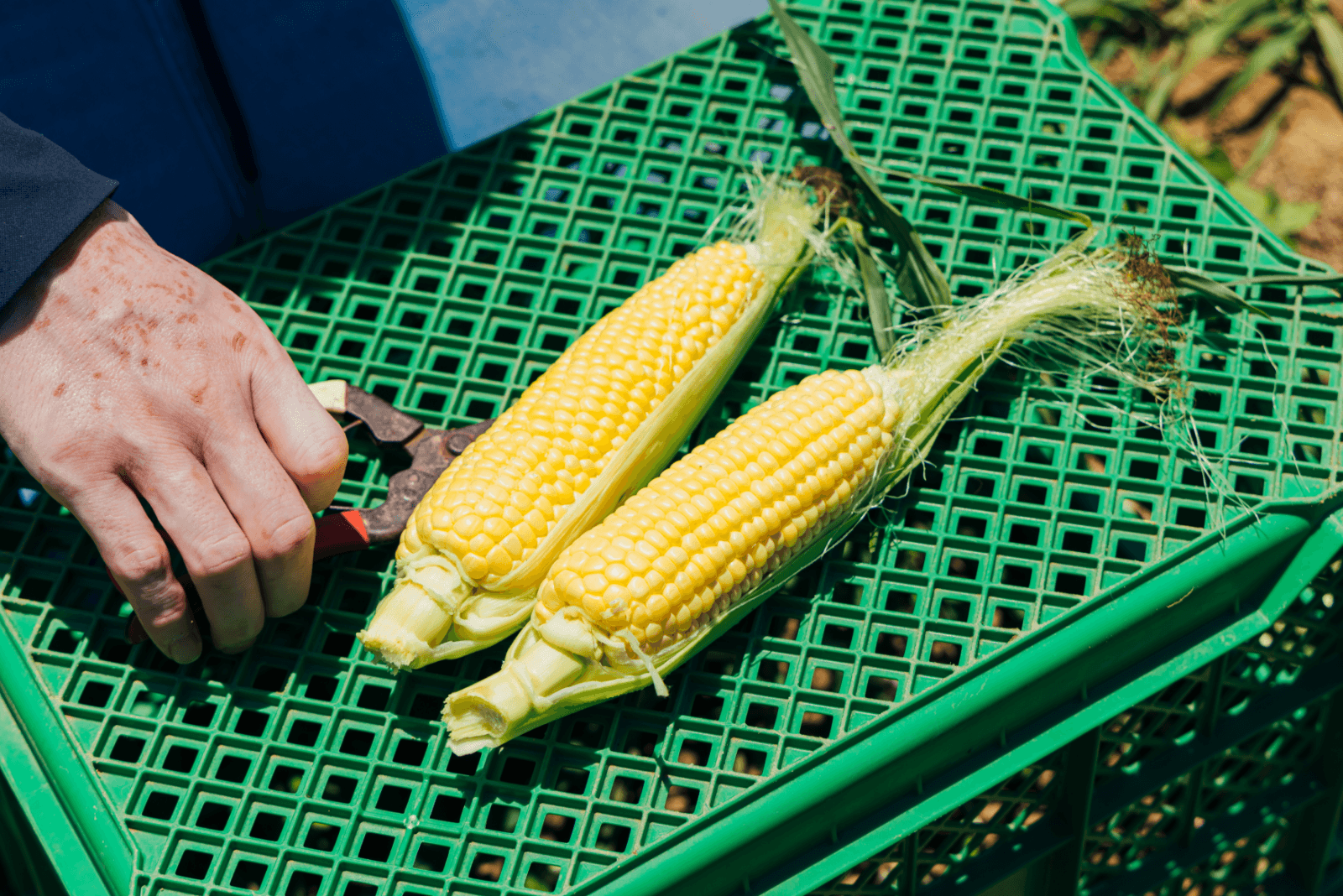
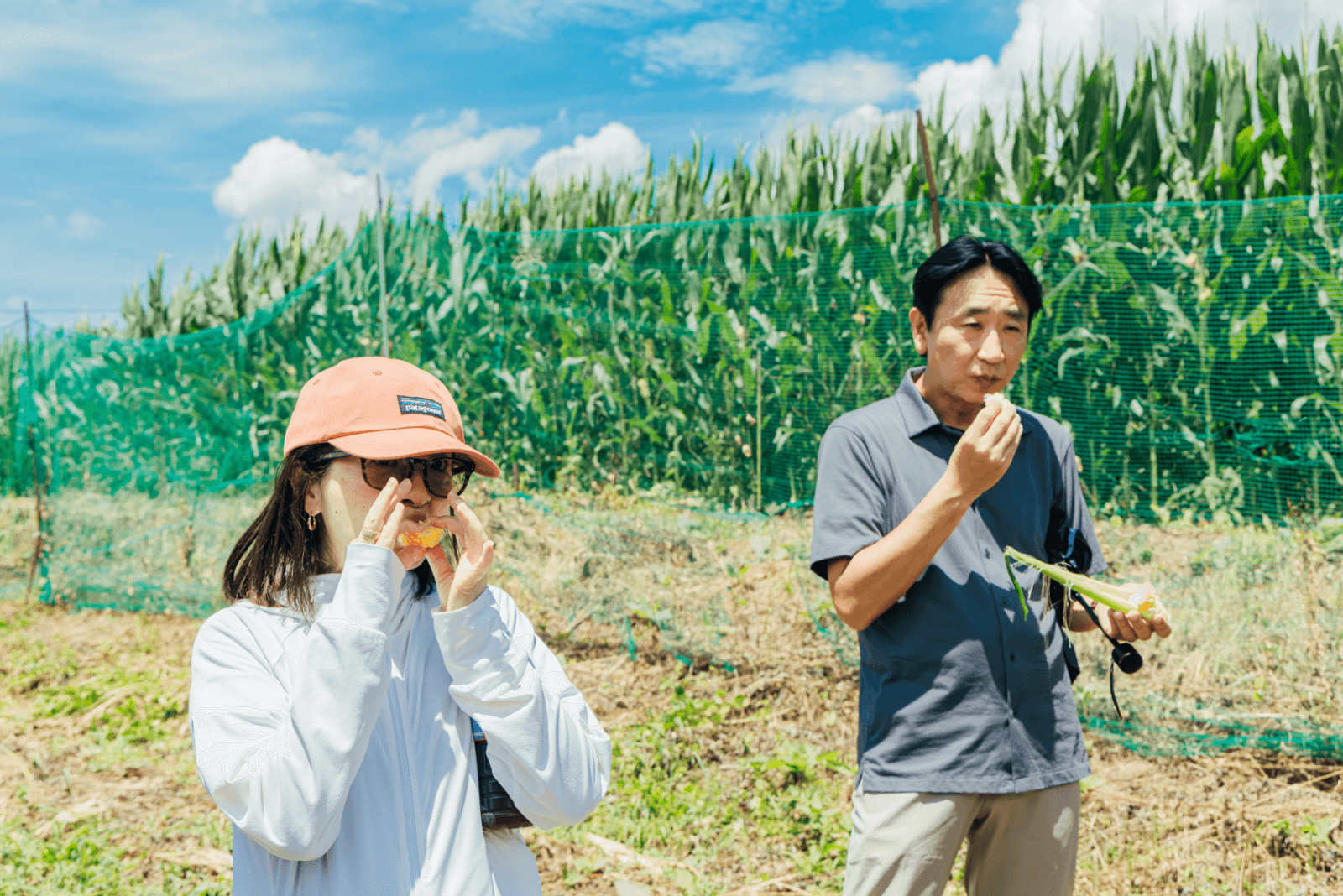
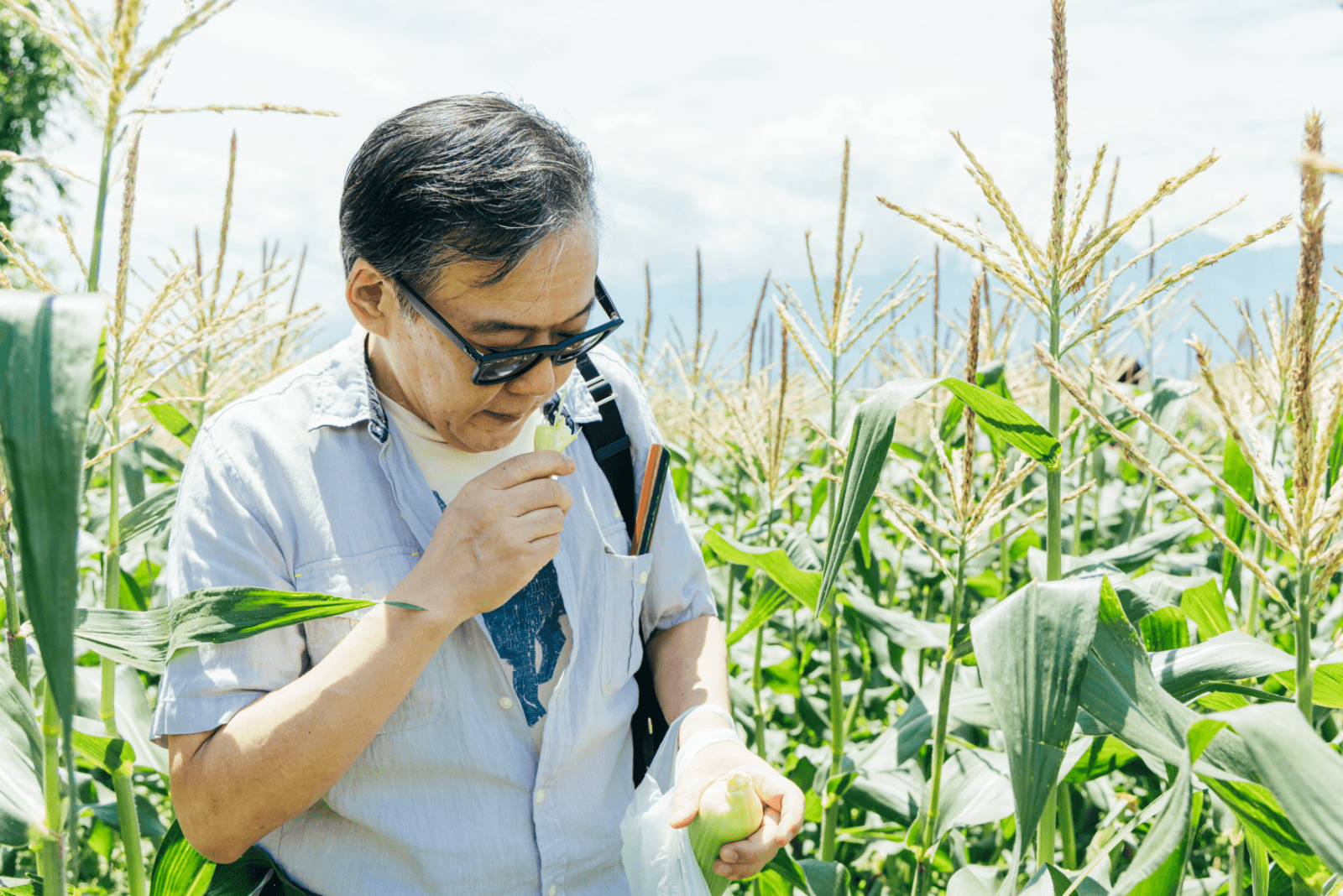
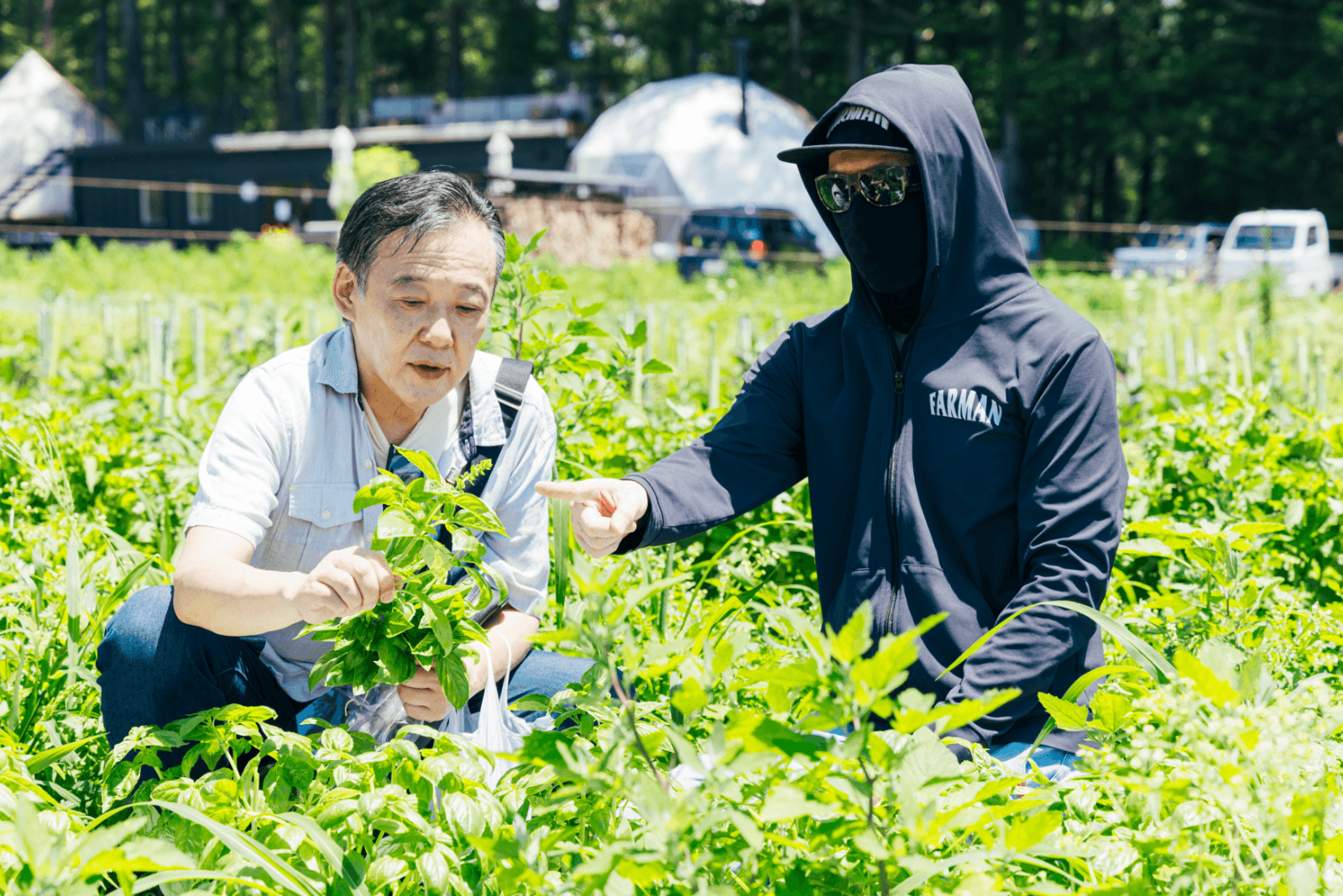
Executive Chef Matsuyama and I chatted in front of the basil growing in the field.
Mr. Inoue stands dressed in modern work clothes that also serve as a protection against the sun.
One of the unique features of Farman's farm is that no pesticides are used, so grass grows freely all around.
Water chestnuts, which were a nuisance in the outer moat of the Imperial Palace, are turned into compost on a farm in Yatsugatake and used to grow delicious vegetables. Those vegetables will then be transported back to the city and turned into soup. Inoue sees the ideals of the SDGs as they connect two seemingly far-flung places through water chestnuts and vegetables.
"By connecting our local farm with the Imperial Palace Moat in the middle of the city through soup, two-way understanding is born. This gives farmers an opportunity to think about consumers, and consumers an opportunity to think about farmers, and creates a relationship where both parties can see each other's faces. I think that this is the kind of sustainability that the SDGs convey."
Under clear skies, people from both the city and the countryside gathered in this field.
Looking into each other's eyes, laughing, and sweating together - this organic connection leads to a desire to protect delicious vegetables and the richness of nature.
This will eventually protect the global environment and pass on a rich food culture to the future.
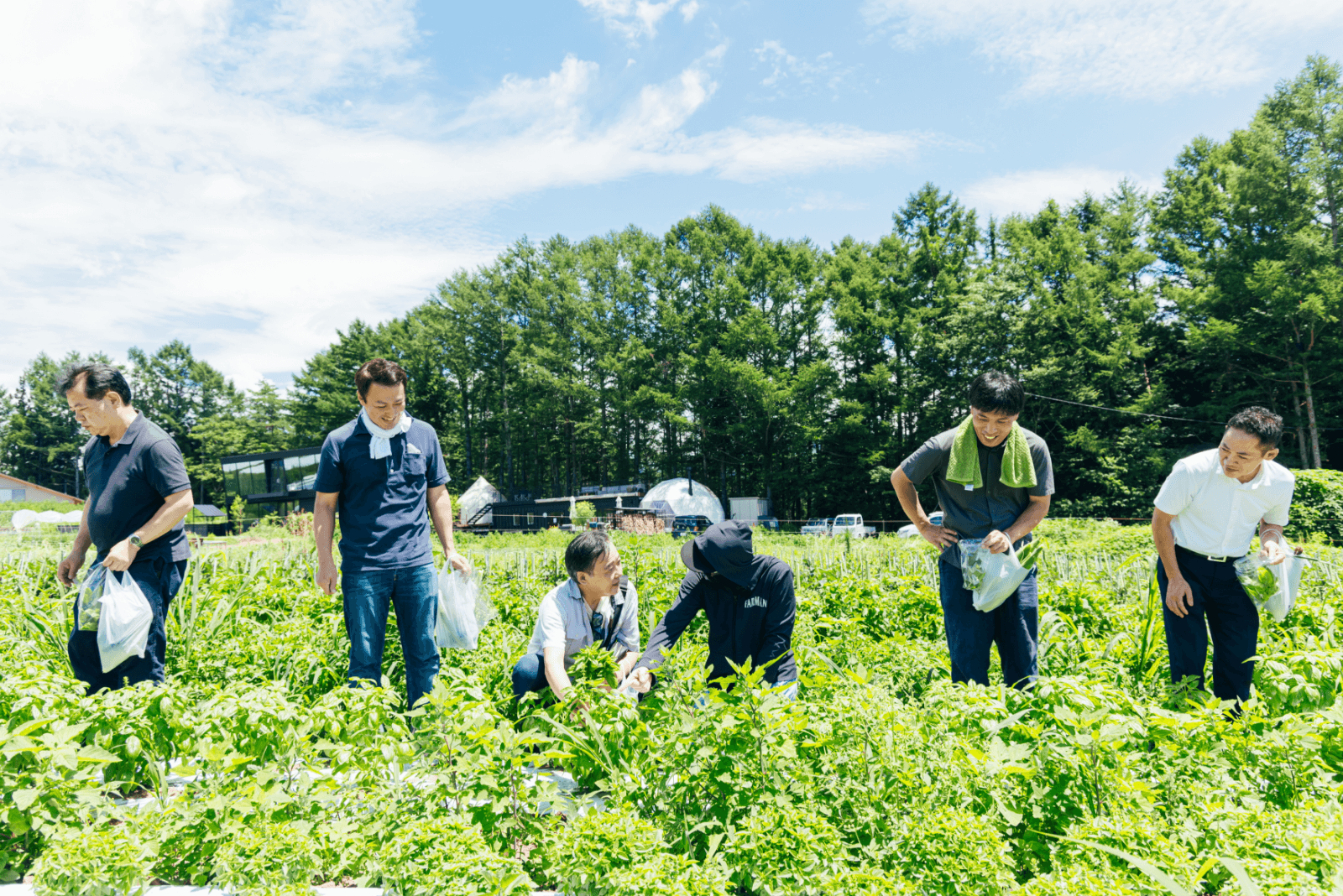
CHAPTER03
The passion put into our soupswill help build a sustainable society
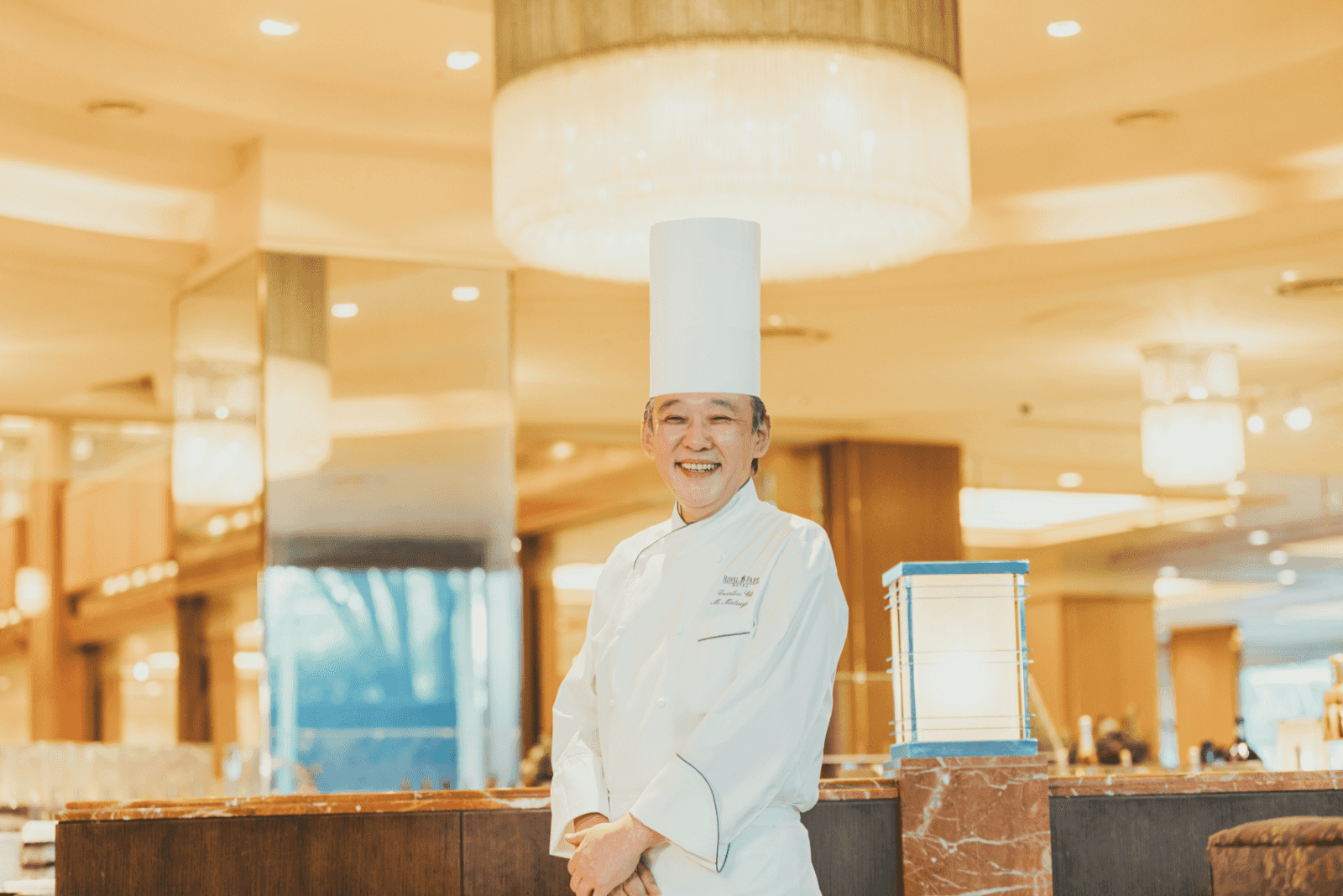
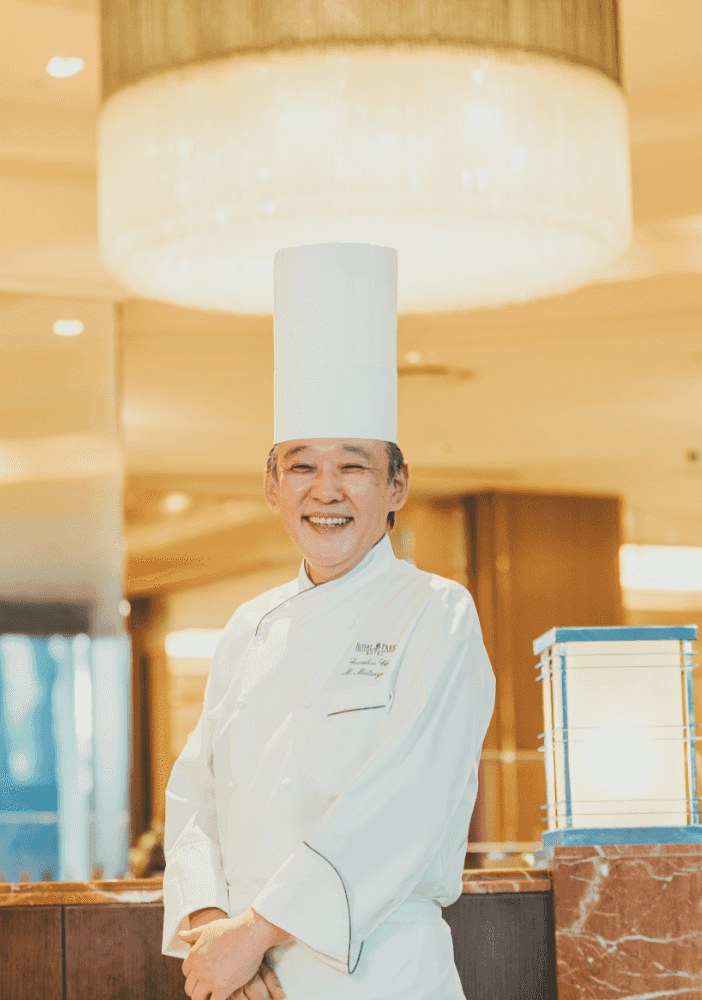
Mitsubishi Estate Hotels & Resorts Co., Ltd.
Group Executive Chef
Royal Park Hotel (Tokyo Nihonbashi)
Executive Chef and Head Chef
Mr. Masaki Matsuyama
1988年入社、在米国 日本国大使公邸料理長、ザ ロイヤルパークホテル アイコニック東京汐留料理長、 三菱開東閣料理長を経て、ロイヤルパークホテル総料理長に就任
I wonder what Executive Chef Matsuyama felt when he received the baton from the farm.
Executive Chef Matsuyama recalls that even before he saw the vegetable cultivation rooted in the land at the Yatsugatake farm, he was impressed by the strong flavors of the vegetables grown by Farman.
"Organic vegetables are known to be healthy and good for the body, but I was surprised to learn that they don't rely on nutritious fertilizers, they bring out the natural flavor of the vegetables, and they practice such environmentally friendly farming."
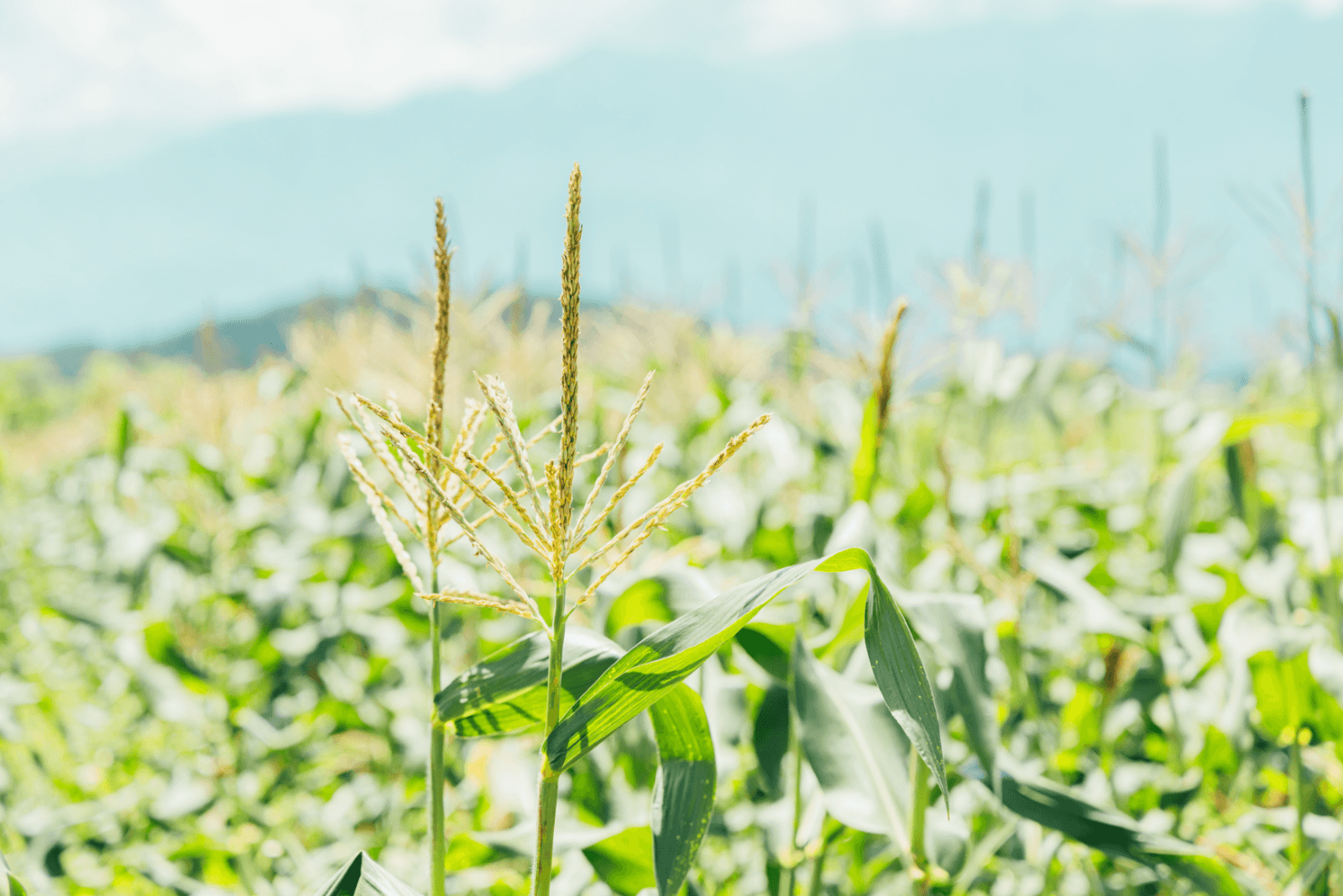
The weight of the fresh onions remains in his hands even now. The strong green aroma he smelled as he walked through the rows of corn. And the feelings of Mr. Inoue that reside in Farman's vegetables. Executive Chef Matsuyama says that his time in Yatsugatake was an irreplaceable experience.
The soup is made from onions and corn, which are packed with the natural sweetness and flavor of vegetables. The seasoning makes the most of the natural flavors of these ingredients. By keeping the flavor simple, they were able to pursue a gentle taste that is perfect for the start of the day in the morning.
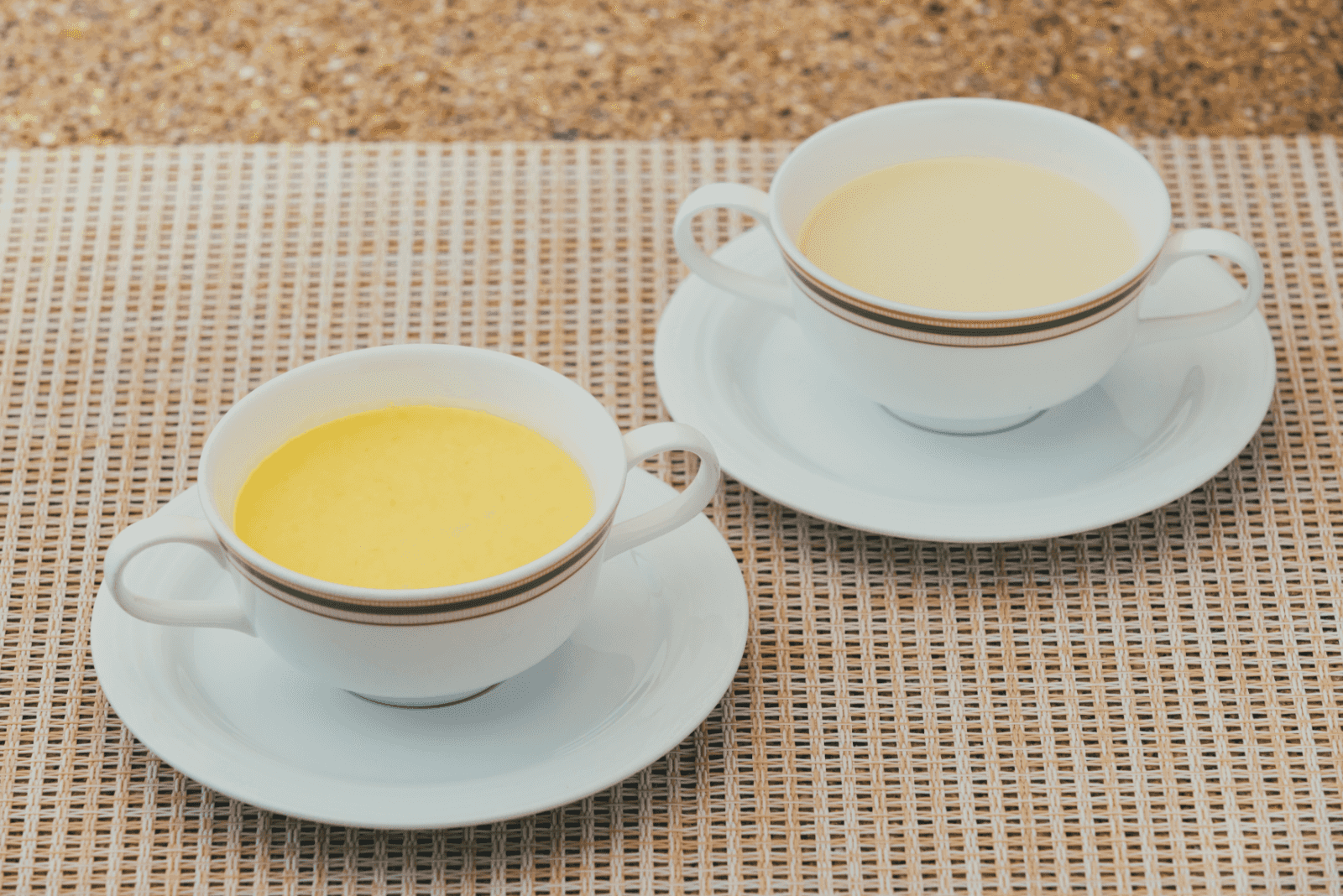
"The corn soup is served cold and refreshing. We intentionally leave no kernels behind and finish it so that it has a smooth texture, allowing you to enjoy the natural sweetness of the ingredients. The onion soup is served hot, sauteed with a little butter, allowing you to enjoy the deep, rich flavor of the onions."
Both soups have a gentle flavor that will slowly seep into your body and mind in the morning.
You will surely feel the same excitement you get from being in the fields. And so, Executive Chef Matsuyama passes the baton to the guests.
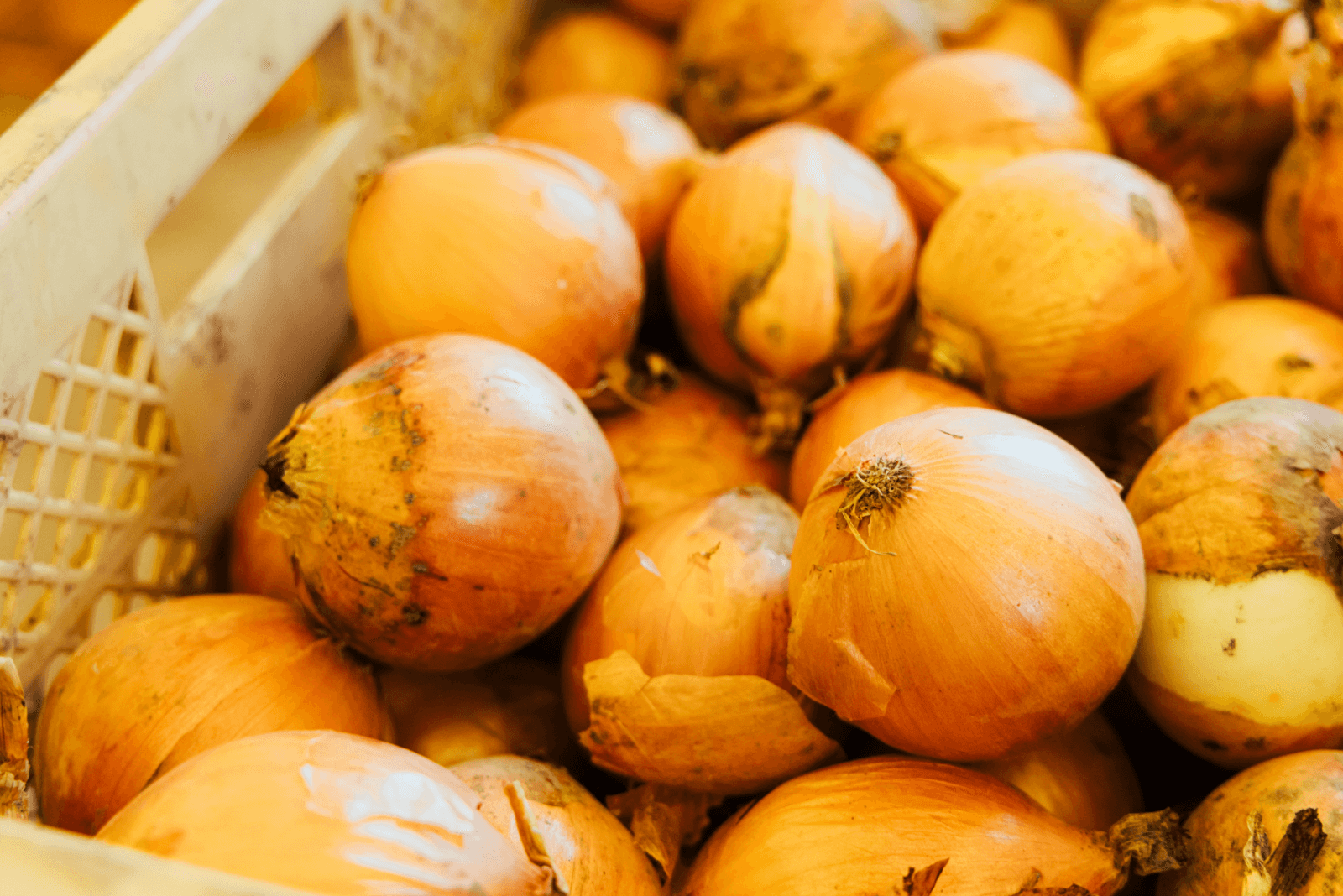
The hotel that will be serving this sustainable vegetable soup is located in an urban area. Executive Chef Matsuyama believes that "it is precisely because we are chefs working in urban areas that we can play a role in connecting rural and urban areas."
Urban areas are densely populated and commercial. Regional areas are rich in nature, but face issues such as a declining birthrate and an aging population. By connecting producers with customers through cooking, we can promote symbiosis between cities and regional areas. The executive chef described this as "the mission of chefs working in urban areas."
"I would be delighted if this vegetable soup could inspire people to think about the origins and farming behind the ingredients. Where and how was the food we eat grown? Spreading this awareness will instill a sense of appreciation for food ingredients. This will encourage people to take action to reduce food waste as a personal issue, which will lead to sustainability and the realization of the SDGs."
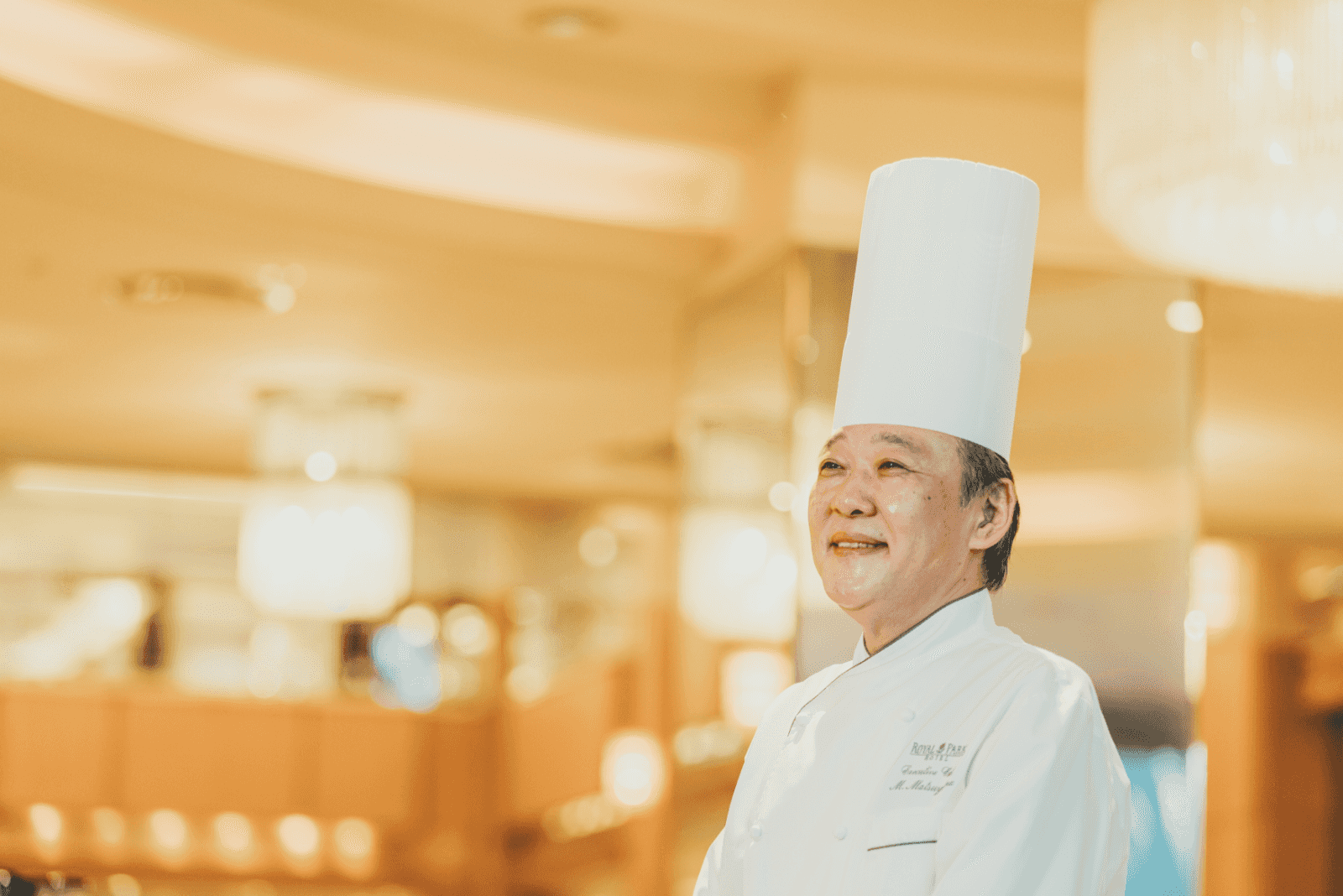
A story of vegetable soup that starts in Marunouchi, passes through the Yatsugatake Mountains, and spreads to cities across the country.
Behind it all lies the passion of people who are sincerely taking on their respective roles in an effort to create a sustainable society.
Beyond this, new possibilities may lie ahead: hotels as hubs that connect people and communities through food and create sustainable cycles.
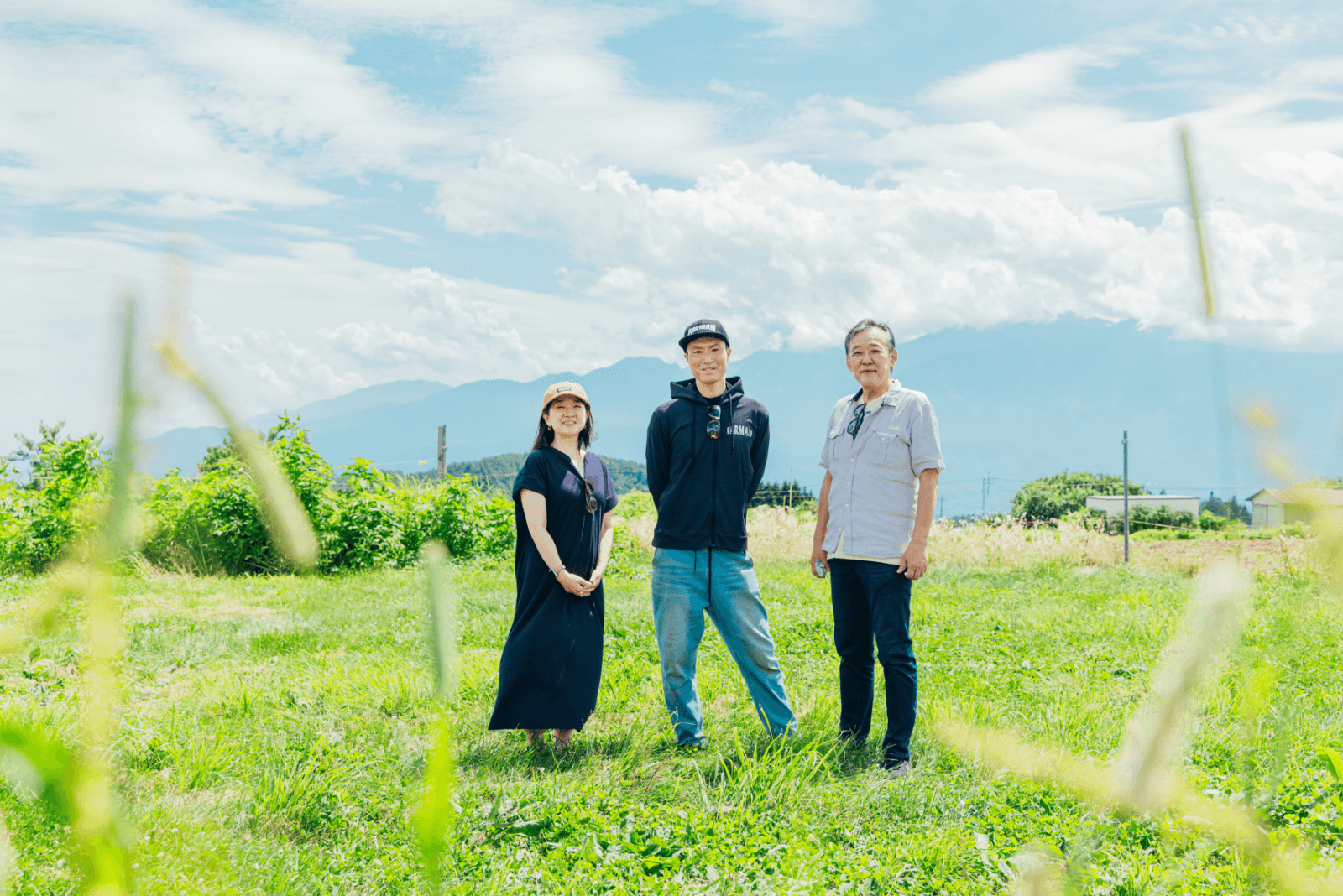
Providing sustainable vegetable soup
Offer period: September 1st (Sun) to October 31st (Thu), 2024 (scheduled) *Available until stock runs out
Place:
・ Royal Park Hotel (Tokyo Nihonbashi)
Chef's Dining "Symphony", Executive Lounge
・ Yokohama Royal Park Hotel
French restaurant "Le Ciel", Teppanyaki restaurant "Yokohama", Club Lounge
・ The Royal Park Hotel Iconic Tokyo Shiodome
All-Day Dining "HARMONY"
・ The Royal Park Hotel Ginza 6-chome
Western restaurant "Ginza Lamptei"
・ The Royal Park Hotel Tokyo Haneda
Restaurant & Bar "TAILWIND"
・ The Royal Park Canvas - Sapporo Odori Park
CANVAS Lounge "KOKAGE"
・ The Royal Park Canvas Ginza 8
Restaurant "Opuses"
・ The Royal Park Canvas - Nagoya
Casual dining "Monsieur Ito"
・ The Royal Park Canvas - Kyoto Nijo
CANVAS Lounge
・ The Royal Park Canvas - Osaka Kitahama
CANVAS Lounge
・ The Royal Park Canvas - Kobe Sannomiya
CANVAS Lounge
・ Marunouchi Hotel
French restaurant "Pomme d'Adam"
Although the method of serving will vary depending on the hotel, it may be served at breakfast, in the lounge, or as a dish at lunch or dinner.
